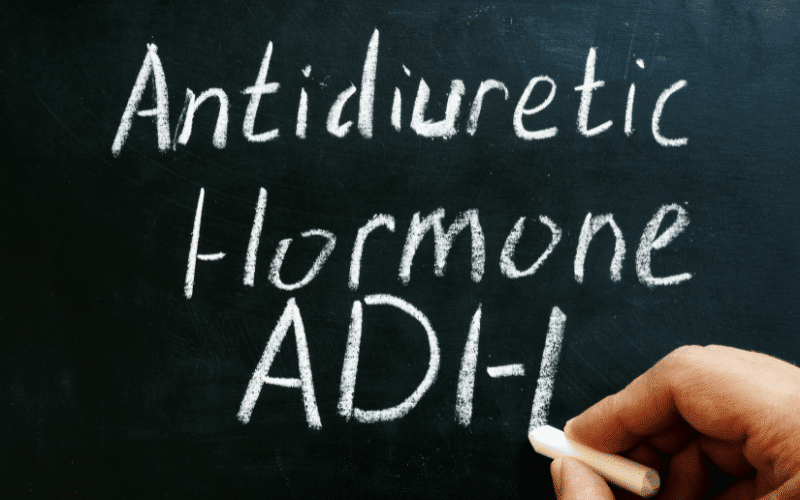Cause 5. Syndrome of Inappropriate Antidiuretic Hormone (SIADH): An Endocrine Instigator of Hyponatremia

SIADH is a condition where the body produces too much antidiuretic hormone (ADH), leading to water retention and dilution of sodium in the blood. This can occur due to various reasons, including lung diseases, certain types of cancer, and use of certain medications.
One common cause of SIADH is the use of certain drugs, such as selective serotonin reuptake inhibitors (SSRIs), tricyclic antidepressants, and some chemotherapy drugs. These medications can stimulate the release of ADH, causing the kidneys to retain water and thereby dilute sodium levels in the blood.
Moreover, brain conditions, including stroke, brain tumor, or traumatic brain injury, can lead to SIADH. The brain plays a crucial role in regulating ADH production, and any damage or disease affecting the brain can disrupt this regulation, leading to excess ADH production and hyponatremia. (5)